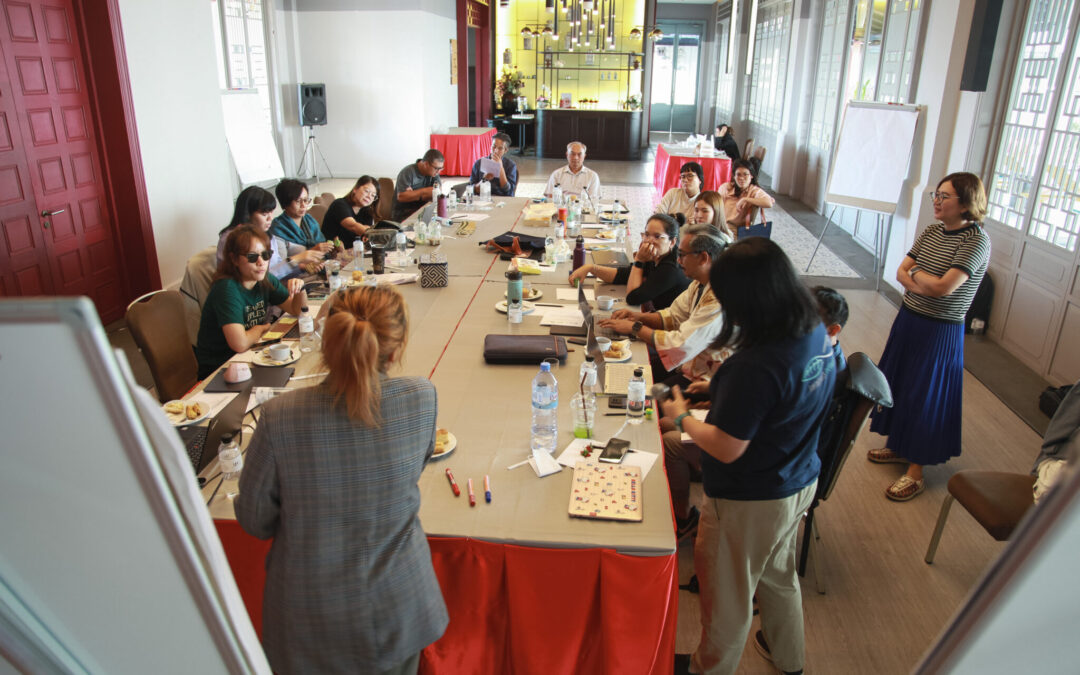

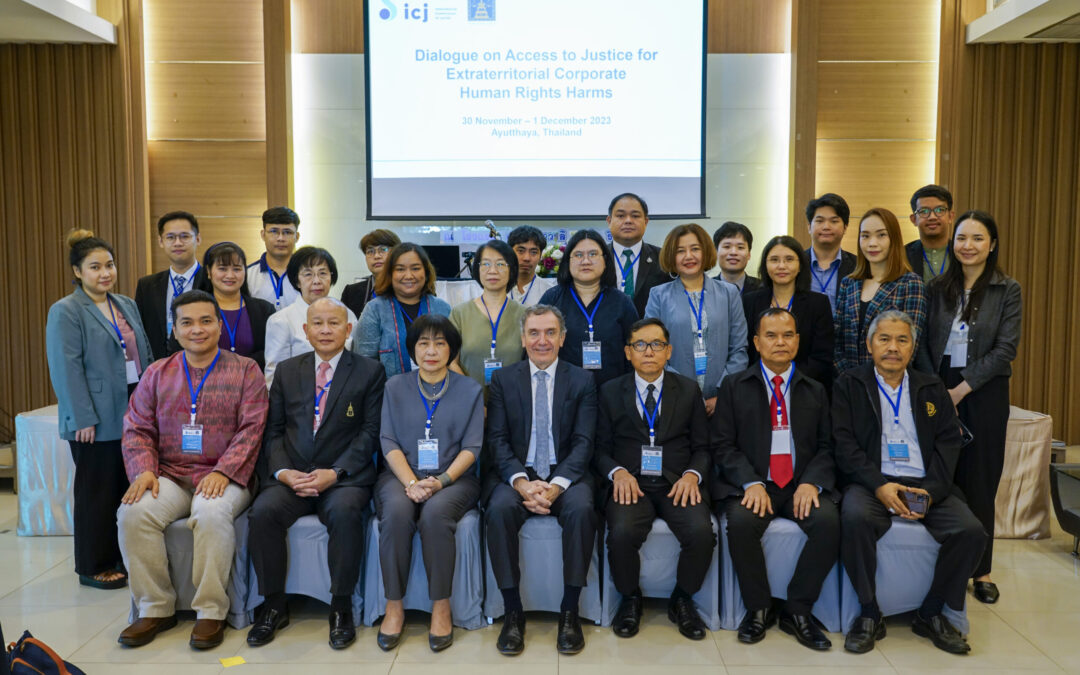
Thailand: Authorities must do more to ensure access to justice and effective remedies for extraterritorial corporate human rights abuses
The conclusion drawn at a workshop hosted by the International Commission of Jurists (ICJ) and Thailand’s Ministry of Justice on 30 November and 1 December 2023, in Ayutthaya province, was that Thailand should step up efforts to provide real access to justice for victims of corporate human rights abuses involving Thai companies abroad. This is imperative to make sure that Thailand meets its international legal obligations and fulfills the commitment it made in adopting a National Action Plan on Business and Human Rights Phase 2 (NAP), aimed at regulating the conduct of Thai companies abroad.
The workshop advanced a crucial component of the set of action points outlined in the NAP, engaging nearly 30 members from the justice sector, relevant authorities across various departments, academics, lawyers, and civil society actors.
“This workshop holds particular importance as it contributes to the global initiative aimed at addressing the lack of human rights regulation and the accountability of transnational corporations, a significant gap in human rights protection,” remarked Santiago A. Canton, ICJ’s Secretary-General in an opening statement.
“The state’s obligation to prevent human rights abuses committed by the companies it may influence does not stop at the border. The adoption of the Maastricht Principles in 2011 revealed evidence of State obligations to protect economic, social, and cultural rights beyond its borders, including in the context of corporate conduct, and this obligation binds the judiciary of the State. These principles have subsequently been confirmed by several jurisprudences of the UN treaty bodies,” said Sandra Epal Ratjen, ICJ’s UN Senior International Legal Adviser.
During the workshop, participants discussed existing challenges, covering areas such as corporate veils, conflicts of law, jurisdictional issues, statutes of limitations, and remedies.
“When an abuse occurs, the legal separation of corporate entities often allows parent companies and their representatives to evade responsibility for human rights abuses committed by them, leaving victims with no means to enforce compensation awards,” said Sanhawan Srisod, ICJ’s Legal Adviser.
“Courts in the parent company’s home country may serve as an alternative forum for claims seeking remedy or reparation. However, affected foreign citizens generally encounter greater barriers than Thai citizens in accessing justice due to several reasons, including language barriers, lack of understanding of the Thai legal system, financial constraints, short statutes of limitation, and the unavailability of access to legal aid, local lawyers, and internal corporate documents,” added Srisod.
Proposals from the participants included amending laws to shift the burden of proof, especially when critical facts or documents necessary to resolve a claim reside exclusively within the knowledge of the corporate defendant. This involves considering the potential influence parent companies exert over their subsidiaries in relevant actions. Other recommendations involved extending the statute of limitations for cases involving victims of transnational corporate human rights abuses, acknowledging the existence of corporate veils under Thai law, strengthening the enforcement of foreign judgments against parent companies in Thailand.
Effective measures aimed at ensuring remedies could include requiring businesses to obtain insurance coverage or establishing preventive remedial funds for Thai businesses before embarking on overseas investment. The eligibility criteria of existing funds and grievance mechanisms could be widened within Thailand to explicitly allow affected persons outside the country access to such remedies and mechanisms. There were also suggestions to explicitly broaden the scope of duties of the National Human Rights Commission of Thailand (NHRCT) to investigate and reconcile abuses occurring abroad.
Further recommendations included establishing standards for remedies with a human-centered approach and exploring the implementation of social sanction measures.
Participants considered how best to implement measures through bodies such as the Securities and Exchange Commission (SEC) and the Board of Investment (BOI), whose representatives attended the Workshop. This encompassed proposals for sustainable disclosure of corporate information to both the SEC and BOI. Additionally, there were suggestions to strengthen the BOI’s role or assign a permanent mandate to the NAP Committee for overseeing Thai investments abroad. Participants also explored the idea of incorporating human rights challenges faced in foreign investment as mandatory disclosure points in the SEC’s One-Report, which listed companies are required to submit annually. Furthermore, there were discussions regarding the Stock Exchange of Thailand (SET) assuming a more influential role in regulating transnational corporations.
Background
Thailand’s National Action Plan on Business and Human Rights Phase 2 (2023-2027) outlines various activities within the Action Plan on Cross Border Investment and Multinational Enterprises.
Its Action Point 1.3 designates the Ministry of Justice, supported by the Ministry of Foreign Affairs and the Office of the Attorney General, with the responsibility of conducting a study. This study aims to offer recommendations for amending laws or establishing measures aimed at ensuring access to the justice system and effective civil, criminal, and administrative remedies for communities, both locally and overseas, affected by the operations of Thai companies or state enterprises abroad.
This workshop was the second of its kind. The first meeting was conducted on 10 and 11 September 2022 by the ICJ and Thailand’s Ministry of Justice.
Speakers at the Workshop included:
- Darunee Paisanpanichkul, Deputy Dean, Faculty of Law, Chiang Mai University
- Ruangsak Suwaree, Director-General, Rights and Liberties Protection Department, Ministry of Justice
- Sandra Epal Ratjen, Senior International Legal Adviser and UN Representative, ICJ
- Sanhawan Srisod, Legal Adviser, ICJ
- Santiago A. Canton, Secretary-General, ICJ
- Sayamol Kaiyoorawong, National Human Rights Commissioner of Thailand
- Teerachai Sanjaroenkijthaworn, Co-ordinator, Extra-Territorial Obligation Watch Coalition
Contact
Sanhawan Srisod, ICJ Associate International Legal Adviser, e: sanhawan.srisod@icj.org
Further reading
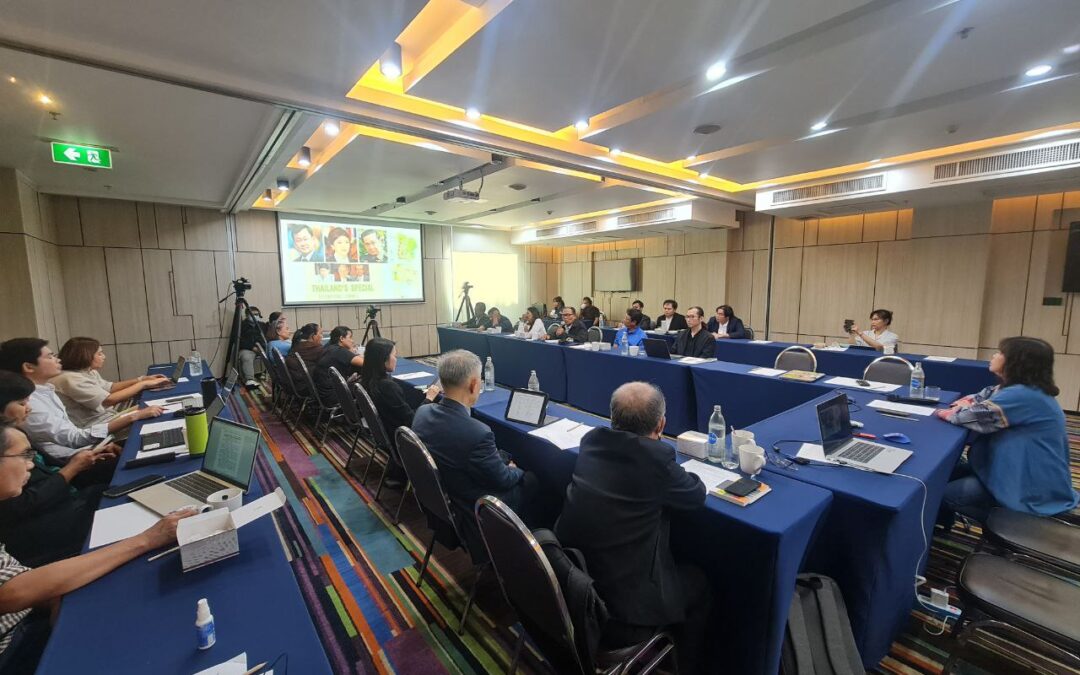
Thailand: Law on the development of the Eastern Economic Corridor should be revised with a view to addressing concerns of affected persons
“The law governing the development of Thailand’s Eastern Economic Corridor (EEC) must be evaluated and revised to address concerns raised by local communities, and align with Thailand’s international human rights obligations,” concluded participants at a dialogue hosted by the International Commission of Jurists (ICJ), Land Watch Thai, EEC Watch, ENLAW Thai Foundation, and Thai Public Broadcasting Service (Thai PBS) in Bangkok, on 22 November 2023.
Participants shared recommendations aimed at improving the Eastern Special Development Zone Act B.E. 2561 (2018) (‘EEC Act’), which governs the operation of the EEC, to better serve the rights and interests of persons in affected communities. These suggestions will be compiled by the organizers and submitted as part of the official consultation process during the 2024 evaluation by the Office of the Eastern Special Development Zone Policy Committee (‘EEC Office’).
The EEC is a special economic zone in Thailand being developed in the eastern coastal provinces of Rayong, Chonburi, and Chachoengsao, along the Gulf of Thailand. Its objective is to promote investment in next-generation industries utilizing innovation and high technology.
“The EEC Act, however lofty are its stated aim, fails to incorporate adequate protection of human rights. While the EEC Act nominally acknowledges international human rights standards such as the United Nations Guiding Principles on Business and Human Rights’ protect, respect, and remedy framework, as well as the principle of promoting and protecting human rights in policy preparation, it fails to provide for adequate means to ensure implementation of these and other human rights standards,” said Sanhawan Srisod, ICJ’s Legal Adviser.
“According to Thai law, the evaluation must achieve goals that include aligning the law with Thailand’s international obligations under international law. Therefore, the EEC Office cannot complete the evaluation process without thoroughly addressing current gaps in compliance,” added Srisod.
The ICJ recommendations presented include the need to incorporate safeguards against forced eviction, in accordance with international human rights law, and to recognize the social, cultural, spiritual, economic, environmental, and political value of land for communities, with special emphasis on the significance for tenant farmers and small-scale food producers. Responsible land-based investments and implementing human rights due diligence are also critical elements.
A survey conducted before the dialogue with 44 affected individuals in Chonburi and Rayong provinces revealed a pattern of practices that fail to comply with Thailand’s international human rights obligations. They include:
- Lack of adequate participation of residents in the consultation process of the EEC Act.
- Absence of representation of locally affected individuals/communities in the Committee overseeing the EEC, primarily composed of governmental authorities and representatives from business sectors.
- The EEC Committee and Office hold overly broad powers without adequate checks and balances.
- The absence of effective grievance and compliance mechanisms within the EEC Office.
- Disregard for the impact of activities on local livelihoods during policy implementation.
- Ineffectiveness and inadequacy of remedies provided for individuals affected by EEC operations.
Participants suggested amending the EEC Act to address these concerns and ensure real participation, inclusiveness, adequate livelihood, a healthy environment, effective remedies, and other human rights of communities in the area.
Additionally, it addressed ongoing litigation initiated by communities challenging town planning within the EEC, specifically challenging the re-designation of agricultural, natural, and environmental reserved zones to industrial zones, which is currently pending before the Central Administrative Court.
Background
The participants comprised 30 affected individuals living in the areas of the EEC and civil society actors. This is the second dialogue following the initial one in June 2023, addressing the same topic.
According to the Act on Legislative Drafting and Evaluation of Law B.E. 2562 (2019), all Thai laws must undergo outcome evaluation at least every five years.
Speakers at the dialogue included:
- Chanchao Chaiyanukit, Former Permanent Secretary of the Ministry of Justice
- Pornpana Kuaycharoen, Land Watch Thai
- Sanhawan Srisod, ICJ
- Saowaruj Rattanakhamfu, Thailand Development Research Institute (TDRI)
- Somnuck Jongmeewasin, EEC Watch
- Sondhi Kodchawat, Environmental Researcher
- Sumitchai Hattasan, Center for Protection and Revival of Local Community Rights
- Supaporn Malailoy, ENLAWThai Foundation
- Sutthikiat Kodchaso, ENLAWThai Foundation
Contact
Sanhawan Srisod, ICJ Associate International Legal Adviser, e: sanhawan.srisod@icj.org
Further reading
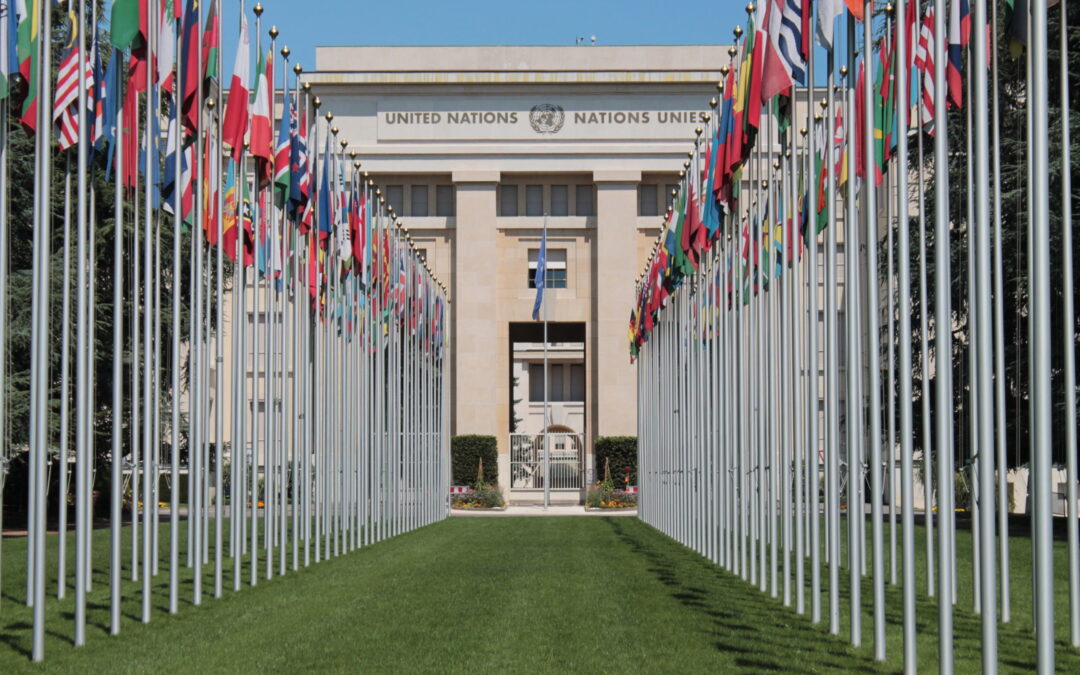
ICJ oral statement on the start of negotiations on the future legally binding instrument on business and human rights
A week of negotiations started at the United Nations in Geneva yesterday to enhance the international legal framework to regulate business enterprises, especially transnational corporations, and increase accountability for human rights abuses and violations linked to their activities. The ICJ has been actively participating in the previous sessions of these negotiations in the last nine years and is committed to pursue its constructive contribution to the debate. Read our statement below.
“Thank you, Mr. Chair.
The International Commission of Jurists (ICJ) congratulates you on your election as the Chairperson-Rapporteur.
The ICJ acknowledges the efforts made by the Chairmanship to propose a revised and streamlined text on the basis of the various inputs received and consultations organized since the 8th session of this working group. We appreciate that this work has resulted in a more concise and clearer text in several places, which, in some respects, may better facilitate the negotiations ahead of us this week. It brings more internal coherence to the text and avoid repetitions that were affecting previous iterations. We also acknowledge that there are varying and divergent positions among States on the more difficult issues under discussion in this process and that you have proposed some compromise formulations to bridge the gaps.
We, however, regret that some critical provisions have disappeared from the revised draft in front of us at this session. The ICJ is particularly concerned that articles concerning prevention, liability and jurisdiction have been stripped of key elements that served to clarify international human rights law with regard to accountability for human rights abuses and violations in the context of business activities; and to ensure access to justice for the victims of such abuses and violations including through access to effective judicial remedies.
The ICJ will thus intervene in the negotiations during this 9th session in a constructive spirit with the aim to make proposals and comments addressing these gaps in the protection of human rights in the context of the activities of transnational companies and other business enterprises.
We are convinced that this process, after 9 years, needs to deliver an ambitious enough text so as to meet the needs of present and future victims and make a real contribution to the necessary development of international law in that area. For these reasons, we urge all States from all regional groupings to participate actively and constructively in the negotiations.
Thank you very much, Mr. Chairperson-Rapporteur.”
Statement delivered by:
Sandra Epal Ratjen, ICJ UN Representative and Senior Legal Adviser, e: sandra.epal@icj.org
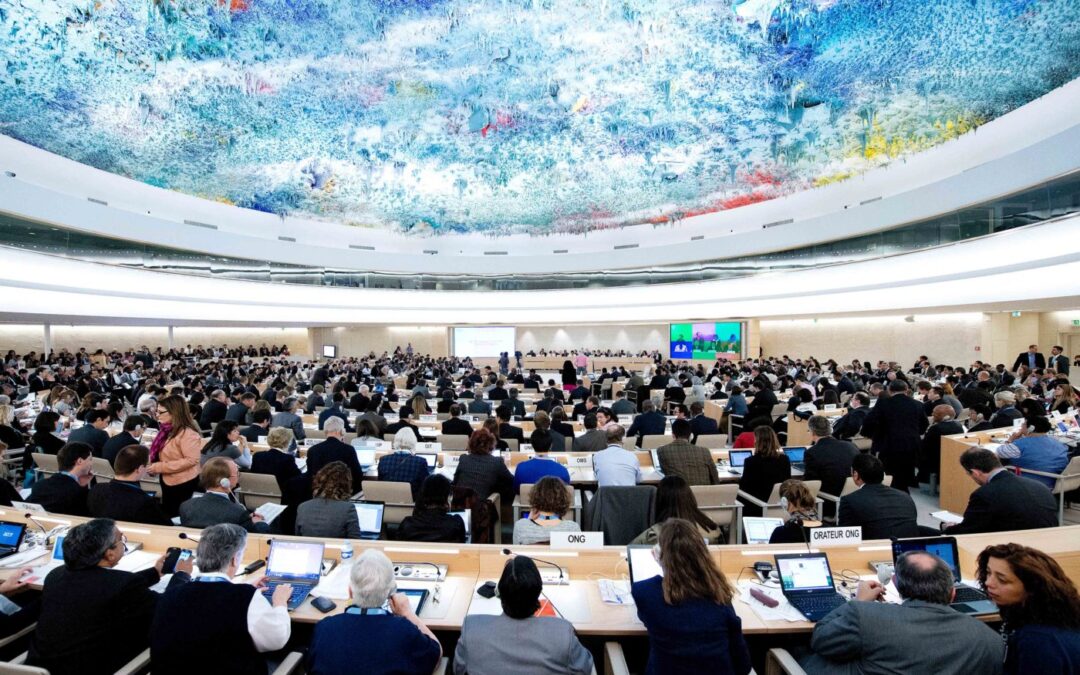
China: International Commission of Jurists and its partner make submission to the Universal Periodic Review
On 18 July 2023, the International Commission of Jurists (ICJ) and the Extra-Territorial Obligation Watch Coalition (ETO Watch Coalition) filed a joint submission to the UN Human Rights Council Working Group on the Universal Periodic Review (UPR) ahead of its review of China’s human rights record in early 2024.




